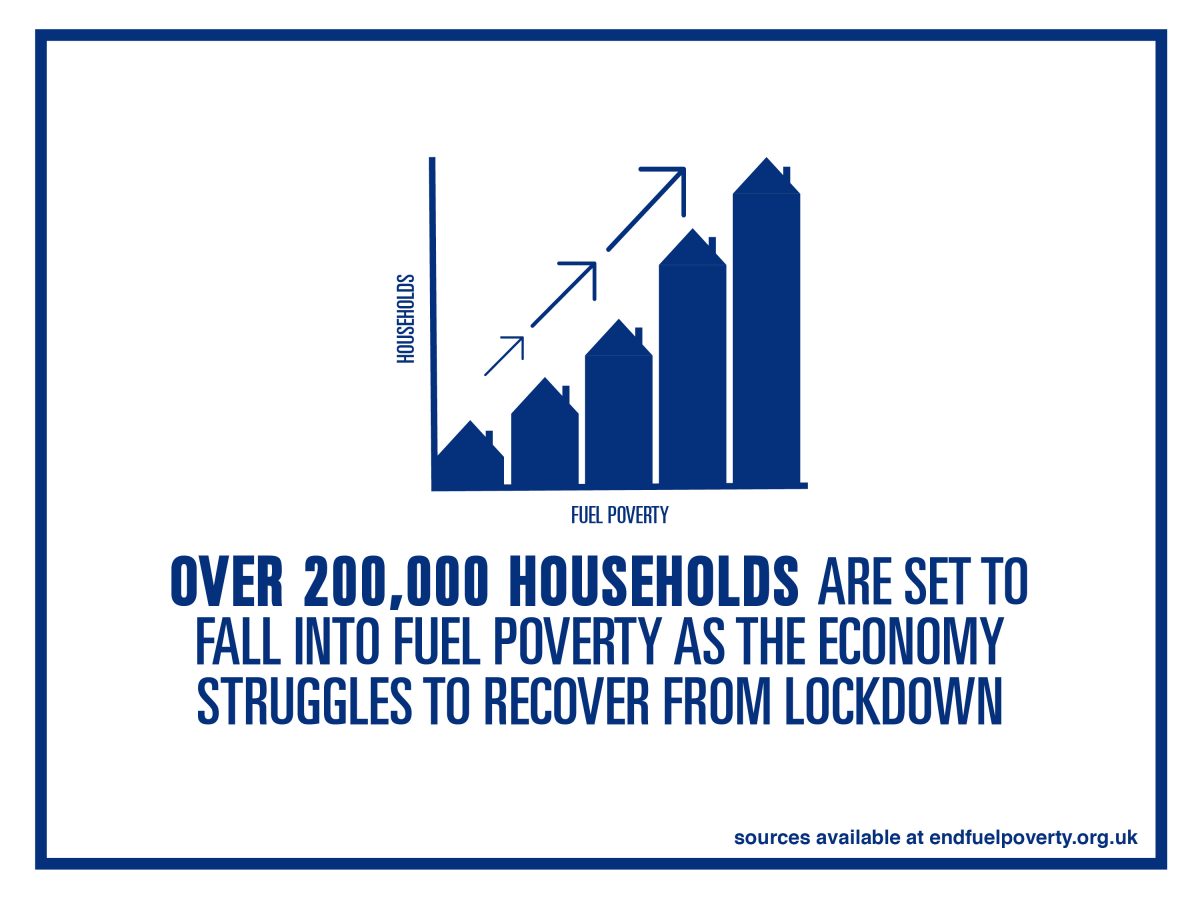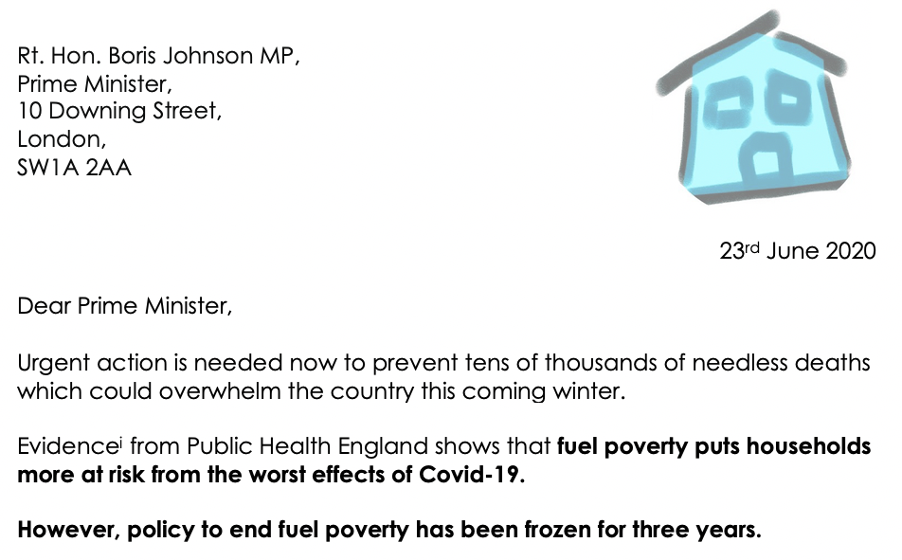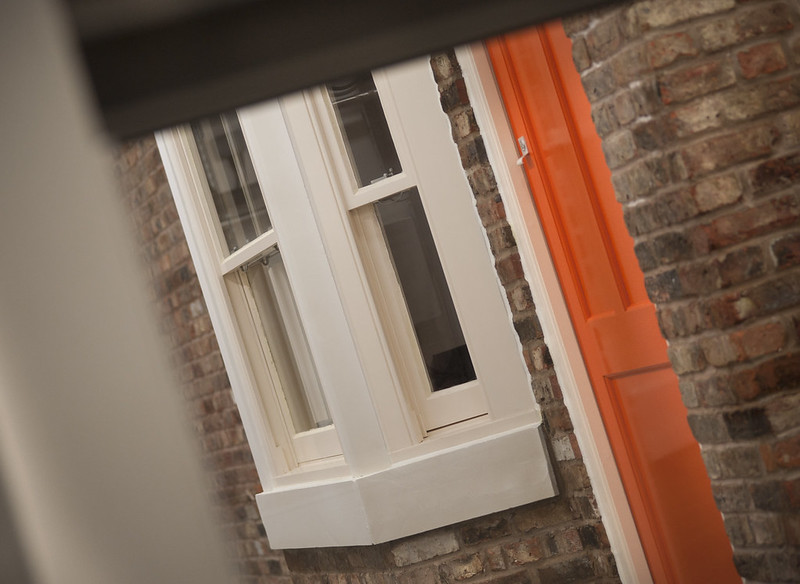The End Fuel Poverty Coalition has called on the government’s Comprehensive Spending Review to solve a problem that has plagued the country for generations.
The submission sets out how fuel poverty could be all but eradicated within the lifetime of this Parliament.
Evidence from Public Health England shows that fuel poverty puts households more at risk from the worst effects of Covid-19.
Therefore, ending fuel poverty is now an urgent public health priority, which can only be solved through economic measures.
The benefits of ending fuel poverty include a faster transition to a just net zero, the levelling up of the economy and a green stimulus to aid the recovery from lockdown.
On the other hand, with energy use rising as people stay at home more and the predicted income squeeze, it is estimated that the numbers in fuel poverty could soar by 200,000. The recent National Energy Action / Energy Action Scotland monitor revealed a significant hardship for fuel poor households in the coming winter, as a potent combination of higher energy use resulting from staying at home for longer is mixed with reductions in income.
One in three British households are already concerned about the health impacts of living in a cold home this winter. And should a second wave of Covid-19 hit during cold weather, the impact could be catastrophic for individuals and our health services.
As a result, the Coalition urges the Government to commit to five main spending priorities:
1) Rapid roll-out of large-scale energy efficiency programmes
2) Urgent delivery of government promises on tackling fuel poverty
3) This unprecedented level of investment needs to be coupled with large scale training programmes
4) Immediate steps to improve energy standards in the private rented sector
5) Fuel Poverty Debt Relief to ensure fewer people will have to choose between heating and eating this winter
The full submission can be read online: https://www.endfuelpoverty.org.uk/wp-content/uploads/End-Fuel-Poverty-Coalition-CSR-Submission-FINAL.pdf




